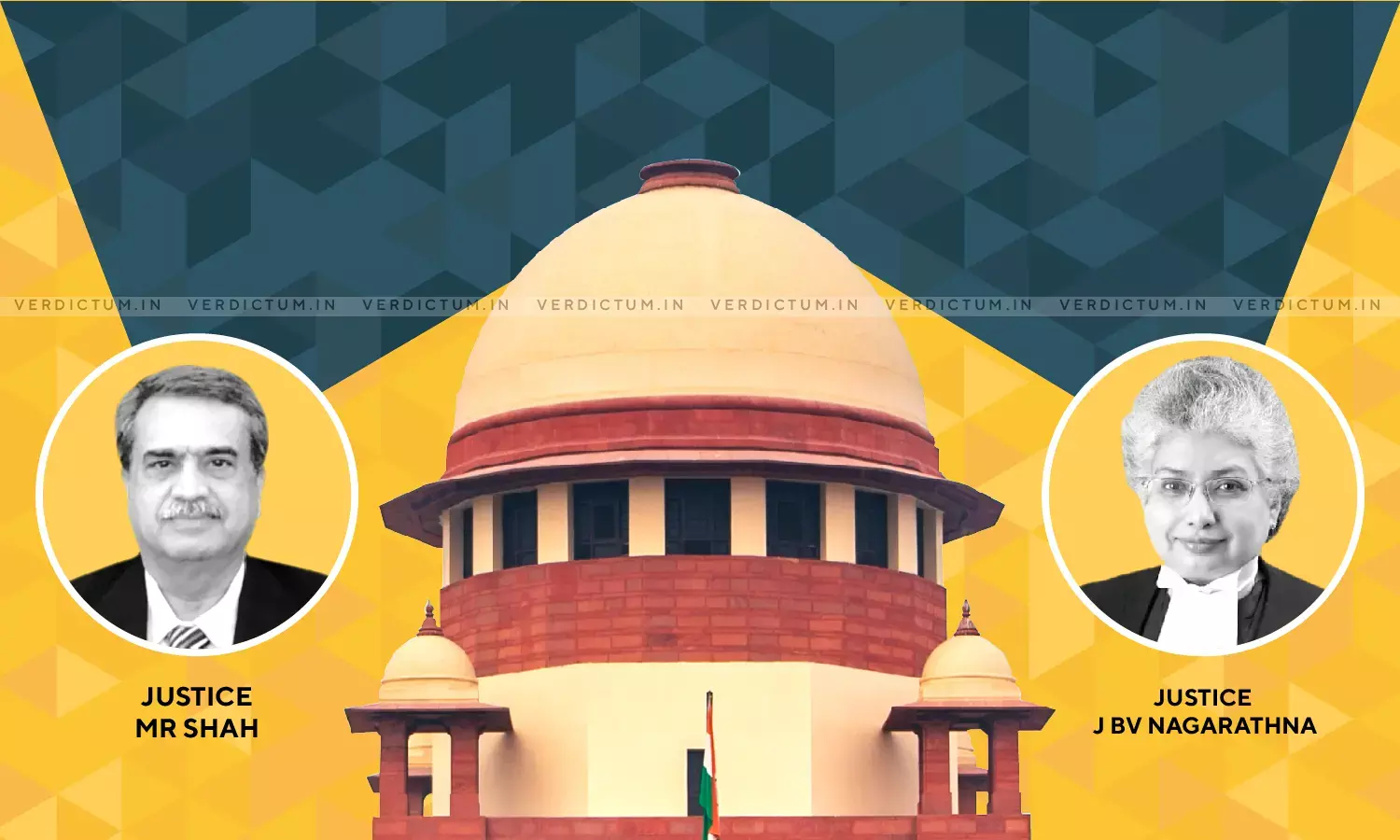Writ Of Mandamus Can't Be Issued Directing State To Provide For Reservation For A Particular Community - SC Reiterates

A two-judge bench of Justice M.R. Shah and Justice B.V. Nagarathna has observed that the Punjab & Haryana High Court had exceeded its jurisdiction by issuing a writ of mandamus directing the State of Punjab to provide for reservation for the particular class or category. Furthermore, it was held that it should be left to the wisdom of the State Government to take a policy decision and provide for a particular percentage of reservation for a particular category of persons.
In the present case, the State of Punjab enacted the Punjab Private Health Sciences Educational Institutions (Regulation of Admission, Fixation of fee and making of Reservation) Act, 2006 where a conscious decision was taken by the Government of Punjab to provide 1% reservation for sportspersons. For the academic year 2019-20, the State Government issued a notification wherein Clause 15 provided for 1% reservation for sportspersons, children/grandchildren of terrorist affected persons and for Sikh riot affected persons in the State quota seats in government institutions. Clause 16 provided for 1% reservation, for sportspersons, children/grandchildren of terrorist-affected persons, children/grandchildren of Sikh riot affected persons and 1% for wards of defence personnel so far as the State quota seats in private institutions were concerned. However, no such reservation was provided for the management quota seats.
A bunch of writ petitions came to be filed before the Punjab & Haryana High Court for the academic year 2019-20 that challenged the notification for first, not providing reservation for sportspersons, children/grandchildren of terrorist affected persons and children/grandchildren of Sikh riot affected persons insofar as the management quota seats in private institutes were concerned; and second, for providing 1% reservation for sportspersons insofar as the government Medical/Dental Colleges as well as the private institutes, instead of 3% reservation for sportspersons.
The Punjab & Haryana High Court allowed the writ petitions and directed the State to issue a fresh notification providing for 1% reservation/quota for children/grandchildren of terrorist affected persons/Sikh riots affected persons in all private unaided non-minority Medical/Dental institutions in the State of Punjab and further directed that the said reservation/quota shall apply to management quota seats as well and further directed that the fresh notification shall also provide for a sports quota of 3% in Government Medical/Dental Colleges. The State of Punjab had preferred the present appeals against this impugned judgment before the Apex Court.
Senior Advocate, Ms. Meenakshi Arora appeared for the State of Punjab while Senior Advocate, Mr. P.S. Patwalia, appeared on behalf of the original writ petitioners.
The primary issue in this case was -
- Whether the State Government's action of taking a policy decision to prescribe a particular percentage of reservation/quota for a particular category of persons, can be interfered with by issuance of a writ of mandamus, i.e. directing the State Government to provide for a particular percentage of reservation for a particular category of persons.
The Supreme Court referred to the cases of Gulshan Prakash v. State of Haryana, read with Chairman and Managing Director, Central Bank of India v. Central Bank of India SC/ST Employees Welfare Association and Suresh Chand Gautam v. State of Uttar Pradesh to assert that the High Court had committed a grave error in issuing a writ of mandamus and directing the State Government to provide for 3% reservation/quota for sportspersons, instead of 1% as provided by the State Government.
Further, the Bench opined, "In the case of Gulshan Prakash (supra), it was observed by Court that there cannot be any mandamus by the Court to provide for a reservation for a particular community."
The Court further opined that a conscious policy decision was taken by the State Government to provide for 1% reservation/quota for sports persons. Thus, the Court held that the High Court had exceeded its jurisdiction while issuing a writ of mandamus directing the State to provide a particular percentage of reservation for sports persons, namely, in the present case, 3% reservation instead of 1% provided by the State Government, while exercising powers under Article 226 of the Constitution of India.
Therefore, the impugned common judgment and order passed by the High Court insofar as directing the State to provide for 3% reservation for sports persons and/or provide for a sports quota of 3% in the Government Medical/Dental Colleges was held to be unsustainable and was quashed and set-aside accordingly.
However, the first direction issued by the High Court directing the State to issue a fresh notification providing for 1% reservation/quota for children/grandchildren of terrorist affected persons/Sikh riot affected persons in all private unaided non-minority Medical/Dental institutions in the State of Punjab was held to be academic and thus, the question of law of whether such a direction/writ of mandamus could have been issued was kept open.
Thus, the impugned judgment of the Punjab & Haryana High Court was quashed and set-aside accordingly by the Apex Court.
Click here to read/download the Judgment

